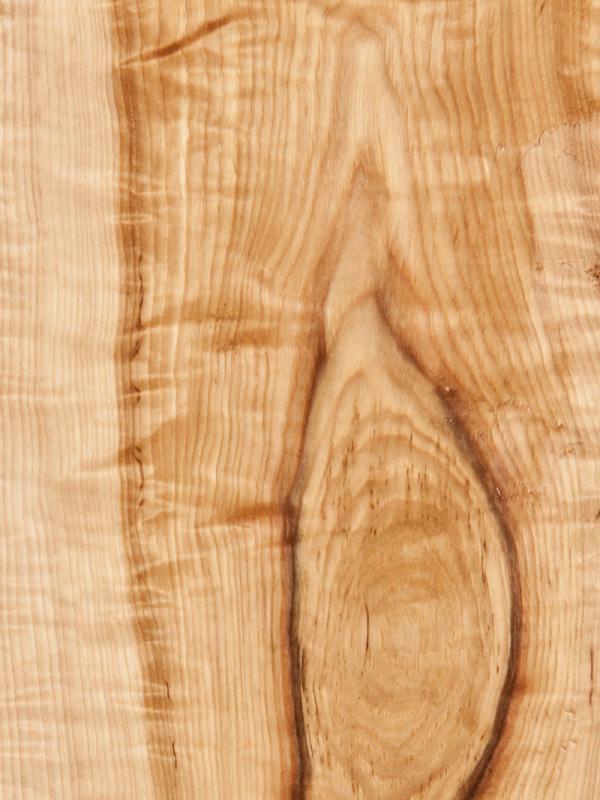
Family: Juglandaceae, Carya (of the Walnut family)
Origin: Eastern North America
Other common names: Red Hickory, Spicebark Hickory, Sweet Pignut Hickory, Shagbark Hickory, Southern Shagbark Hickory, Carolina Hickory
The tree: Hickory trees grow 60-80 feet tall, with a trunk base 3-4 feet in diameter, and produces oval-shaped nuts. The small, yellow-green spring flowers are pollinated by the wind.
Appearance: Bands of light cream contrast with reddish brown heartwood. The name "curly" comes from the waves within the wood's grain.
Density: One of the most dense hardwoods. The average reported specific gravity is about .82 (ovendry weight/green volume), equal to an air-dried weight of 50 pcf. Janka hardness is 1,880 pounds of force.
Drying & shrinkage: Hickory shrinks more in the drying process than other woods like maple or poplar. Average reported shrinkage values (green to ovendry) are 7% radial, 10.5% tangential.
Working properties: This is a very difficult wood to work with, because of its density. The wood responds well to steam bending.
Durability: Hickory is one of the strongest hardwoods in North America, because of that, anything built from hickory is sure to last.
Uses: This wood is generally used for furniture and tool handles, because of it's tough durability.
Availability: Hickory wood is readily available in the United States.